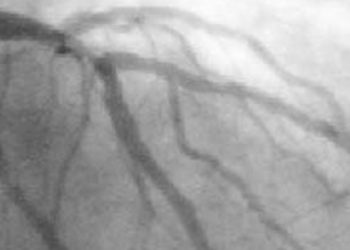Early enteral feeding safe for neonates with congenital gastrointestinal malformation undergoing intestinal anasatmosis
1. Among neonates with congenital gastrointestinal malformations requiring surgery, early enteral feeding is safe and well-tolerated when compared with traditional postoperative nutrition strategies.
Evidence Level Rating: 1 (Excellent)
Congenital gastrointestinal malformations – such as duodenal obstruction, jejunoileal atresia, and meconium ileus – among neonates are often treated with primary intestinal anastomosis. Historically, patients undergoing such surgeries were kept NPO for an extended period of time following the operation; however, there has been a transition in recent years towards early enteral feeding (EEN), which has been shown to reduce not only postoperative morbidity and mortality but also length of stay in adults undergoing gastrointestinal surgery. This study is a randomized clinical trial evaluating the safety and efficacy of EEN among neonates with congenital gastrointestinal malformations undergoing intestinal anastomosis. The primary outcomes were time to full feeds and length of postoperative stay (LOPS). 78 infants were randomized to the EEN cohort – in which enteral feeds were started within 48 hours via nasogastric tube (NGT) before transitioning to oral feeds upon resolution of bilious gastric residual or drainage – and 78 infants to the control cohort – in which neonates remained NPO with decompressive NGT until resolution of bilious gastric residual or drainage before starting oral feeds. The most common malformation was jejunoileal atresia, followed by duodenal atresia and annular pancreas. In the EEN cohort, the mean time to full feeds and LOPS were 15.0 (9.8 to 22.8) and 17.6 (12.0 to 29.8) days, respectively, which did not differ significantly (p > 0.05) from the control cohorts, where the mean time to full feeds and LOPS were 18.0 (12.0 to 24.0) and 20.0 (15.0 to 30.3) days, respectively. Furthermore, there was no difference between the two cohorts with respect to anastomotic leakage, peritonitis, gastrointestinal hemorrhage, necrotizing enterocolitis, or sepsis. EEN was well-tolerated, with no significant difference in the incidence of abdominal distention, repeated vomiting, repeated decompressive NGT, or repeated NPO. In all, this study demonstrated that among neonates with congenital gastrointestinal malformations requiring surgery, EEN is safe and well-tolerated.
Click to read the study in the Journal of Pediatric Surgery
Image: PD
©2020 2 Minute Medicine, Inc. All rights reserved. No works may be reproduced without expressed written consent from 2 Minute Medicine, Inc. Inquire about licensing here. No article should be construed as medical advice and is not intended as such by the authors or by 2 Minute Medicine, Inc.






